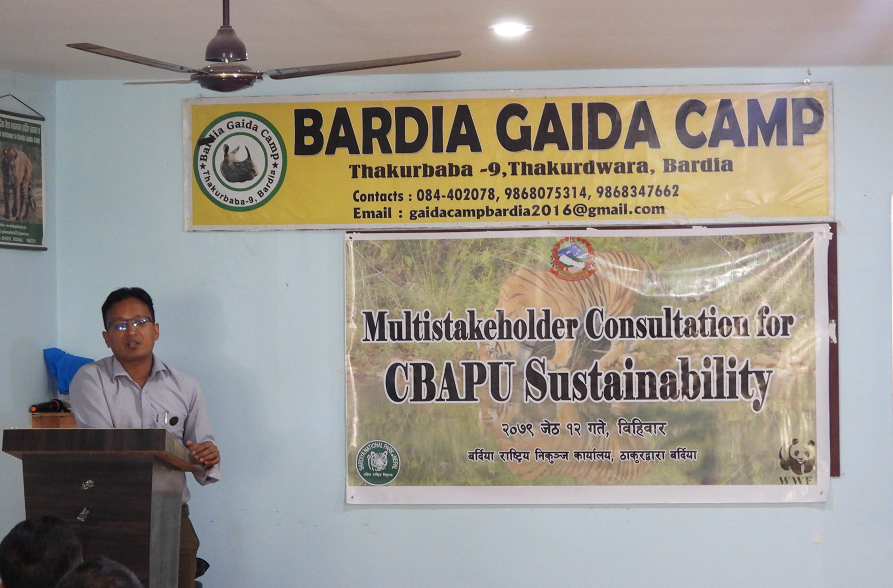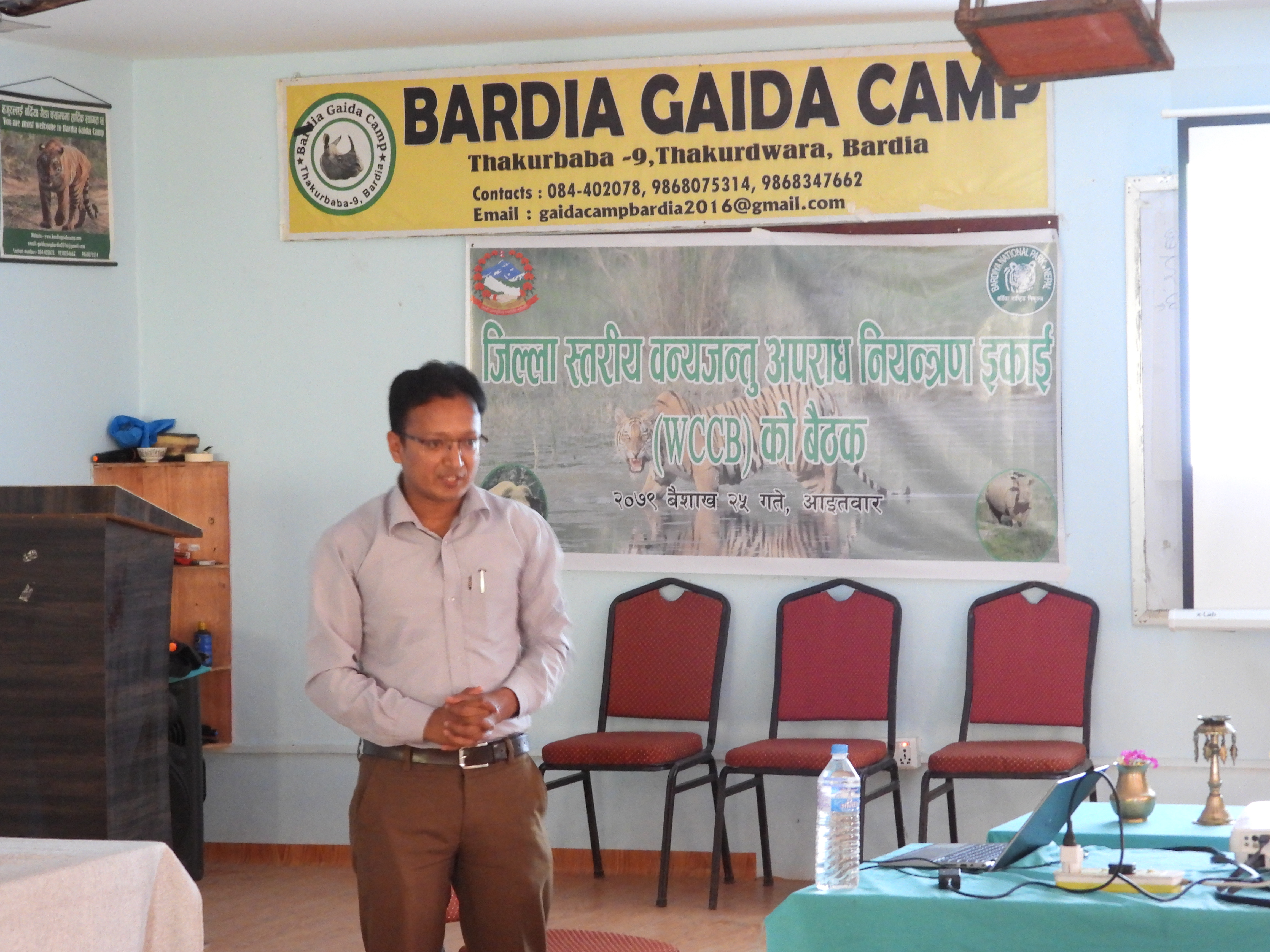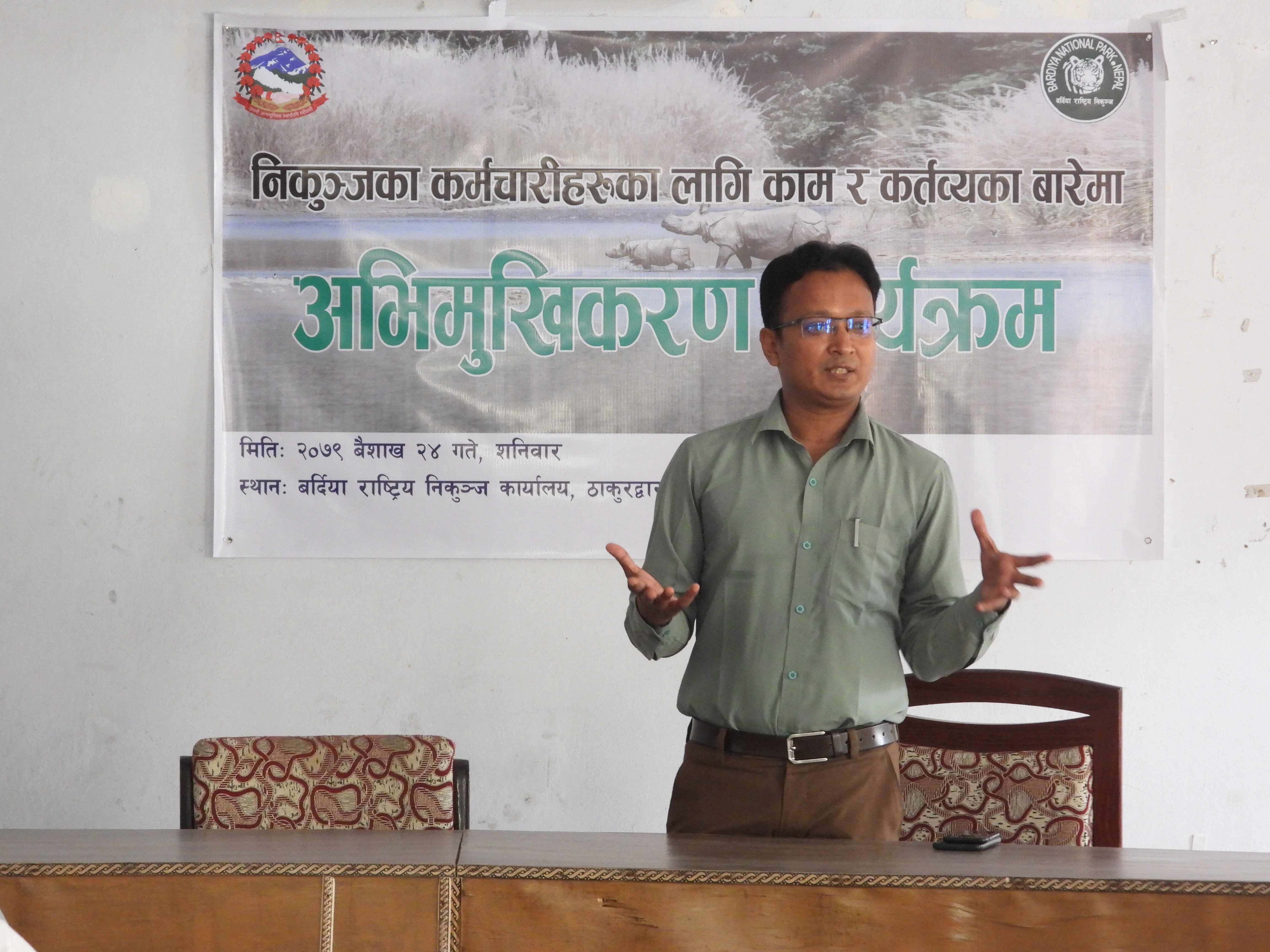National Tiger Workshop
Thakurdwara, Bardia
25 March, 2023
Agenda
Nepal has successfully achieved its goal of doubling the wild tiger population. It was possible due to our combined efforts in improving habitat, controlling poaching and trade, and engaging stakeholders in conservation. Importantly, local community support and engagement have been central to this recovery of the tiger population in the country. Strategic interventions are urgently needed to maintain the increased tiger population while managing the resulting human-tiger conflicts. Adequate protection for tigers outside protected areas, increasing prey density, particularly large species, maintaining the productivity and quality of conservation landscapes, and managing for human-tiger co-existence are some of the key challenges. In this context, the national tiger workshop aims to bring together stakeholders (government, policymakers, scientific community, managers, media, and the local community) to discuss achievements and learnings and visualize the future of tiger conservation in Nepal. The main objective of the workshop is to discuss challenges, and opportunities and provide feedback for the policymakers, managers, and other stakeholders for securing the long-term persistence of the tigers while maintaining the human wellbeing of the people living around the tiger bearing protected areas.
- Current status of tiger conservation, opportunities and challenges: The workshop participants will share the key achievements and current status of tiger conservation in Nepal and discuss various threats and challenges such as habitat loss, poaching, human-tiger conflict, the impact of linear infrastructure, and emerging challenges, such as climate change and diseases. Besides, the discussions and deliberations will focus on way forward for sustaining the increased tiger population in the country.
- Management of increased tiger population: Participants will discuss how increased tiger populations can affect its habitat, prey population, eco-tourism opportunities, and human well being and explore ways to monitor tiger and prey populations (including cutting edge molecular method), increase the prey biomass, maintain connectivity, and improved the functionality of the landscape. This workshop will also explore the ideas and strategies to connect tiger conservation to ecotourism, and the livelihood of the local community for long-term human-tiger coexistence.
- Best practices for problem-tiger management: Workshop participants will discuss ways to mitigate conflict and minimize the risk of tiger attacks on humans. The workshop will provide a platform for park officials and practitioners to share their experiences and best practices for managing problem tigers. The participants will discuss problem-tiger handling strategies and protocols considering the ecosystem, impacts on the tiger population, and or human safety. It will explore the capacity enhancement measure of institutions and of park staff on rescue and handling of problematic tiger.
- Partnerships for tiger conservation: The workshop will bring together stakeholders from all three levels of government, conservation partners, CBOs, academia, and local communities to identify opportunities for collaboration and partnership, mobilization and use of conservation funding, capacity development, and building stewardship of the local community.
- Strengthen wildlife enforcement: The workshop will discuss and explore the ideas to strengthen wildlife protection, explore the future perspective on the use of cutting-edge technology including genetic and molecular techniques, site-specific anti-poaching solutions, and protection of tigers outside the protected areas and strengthening existing institutional setup.
- Financial sustainability: The workshop will discuss and explore the ideas for the establishment and mobilization of innovative fund and financial arrangements for securing long-term fund for tiger conservation and community development projects. The participants will discuss how to generate and mobilize various financial mechanisms available, such as funding from Payment for Ecosystem Services, Conservation Trust Funds, Impact Mitigation Funds, Public-Private Partnerships, Carbon Credits, Corporate Social Responsibility and so on.
Overall, the workshop will provide a platform to identify and discuss gaps in the science such as limited research on diseases), policy (what is the department's policy on problem tiger management), and practice of tiger conservation (field implementation, habitat management, and law enforcement modalities). The workshop will discuss and develop practical solutions and strategies for improving tiger conservation and management. This could contribute to tiger conservation action plans, implement innovative conservation technologies, improve law enforcement, and foster community engagement and awareness.





